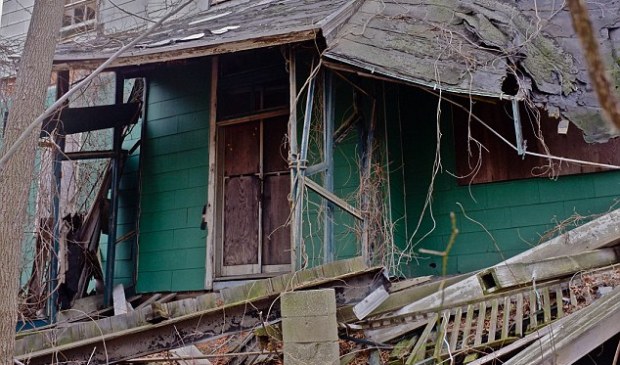Code violators may get administrative hearings
Thursday, October 23, 2014 by
Tyler Whitson The Code Department may soon have a new tool to enforce city code, if an ordinance passes at today’s City Council meeting that would create an administrative hearing process for certain violations.
Code Department Director Carl Smart told Council members at Tuesday’s work session that he hopes the new procedure will help to streamline the code enforcement process.
“Items that are more minor in nature, that can be easily corrected, could be taken to an administrative hearing officer,” Smart said. “The officer can hear the case — hear both sides — render a decision, and hopefully we can get quick compliance.”
Smart said that San Antonio, Fort Worth and Dallas have instituted a similar practice.
Council Member Bill Spelman supported the idea. “It sounds like, certainly, we should try this out and see how well it works,” he said.
Currently, staff has two options for dealing with parties who do not voluntarily comply with code violation notices. The first is to send cases to the Building and Standards Commission, a volunteer, quasi-judicial body with the authority to make legal orders. In certain instances, staff may send cases to municipal — or criminal — courts.
Smart said that, on average, it takes a case 20 to 30 days to get to a municipal court and 30 to 45 days to get to the commission. He said he would hope to get cases to a hearing officer in “a couple of weeks,” adding that he or she would have more flexibility than the commission and would be able to meet more often, if necessary.
According to staff backup, the new process would apply to ordinance violations related to buildings or improvements that present public or fire safety risks or are dangerously damaged or deteriorated, waste and other materials that encourage breeding of insects or rodents, and other issues involving building code or the condition, use or appearance of properties.
Smart said that, though both the commission and the hearing officer would have the authority to hear the same types of cases, staff would determine where to send the cases to based on severity.
“If it’s a fairly minor violation, then that will go to an administrative hearing,” Smart said. “If it’s major or structural — like dangerous buildings, particularly demolition candidates — they will continue to go the Building and Standards Commission.”
A hearing officer would be limited in authority to assess monetary penalties to violators. However, staff will still have the option to escalate cases to the commission, which, in addition to issuing fines, has the authority to order repairs, demolitions, vacations of property and relocations.
Another major difference between the two processes relates to the burden of proof. While both require decisions be made based on a preponderance of evidence, the burden of proof in an administrative hearing is on the individual challenging a citation, rather than on staff, as it is in the commission process.
Smart explained that, if Council adopts the ordinance, the Code Department would utilize an existing contract with an administrative hearing officer in order to kick-start the process. In the meantime, it would train and authorize existing officers to conduct administrative hearings.
“I think, in a year or so, we’re going to see a regular stream of cases going through an administrative hearing officer agenda that could have anywhere from 10 to 30 (total) cases per month, if not every other week,” Smart said.
Smart also said that Code Department staff will include monthly data about the new procedure in their quarterly reports in order to gauge its effectiveness.
Council Member Kathie Tovo sought clarification on the fiscal impact the new procedure might have. “We’re instituting kind of a staff process for what has been handled by our volunteer board,” she said. “So there is definitely a cost involved, and I want to be sure that there’s a real need for it.”
Smart said the new process would reduce the need for staff to prepare cases for the commission. “It would take more time to process the case through the Building and Standards Commission, going through all of the notice requirements and packaging and all of the things that it takes to actually make that hearing successful,” he said.
Smart also stated that Code Department staff asked the commission for input about the new procedure and that they generally expressed support for it.
You're a community leader
And we’re honored you look to us for serious, in-depth news. You know a strong community needs local and dedicated watchdog reporting. We’re here for you and that won’t change. Now will you take the powerful next step and support our nonprofit news organization?









